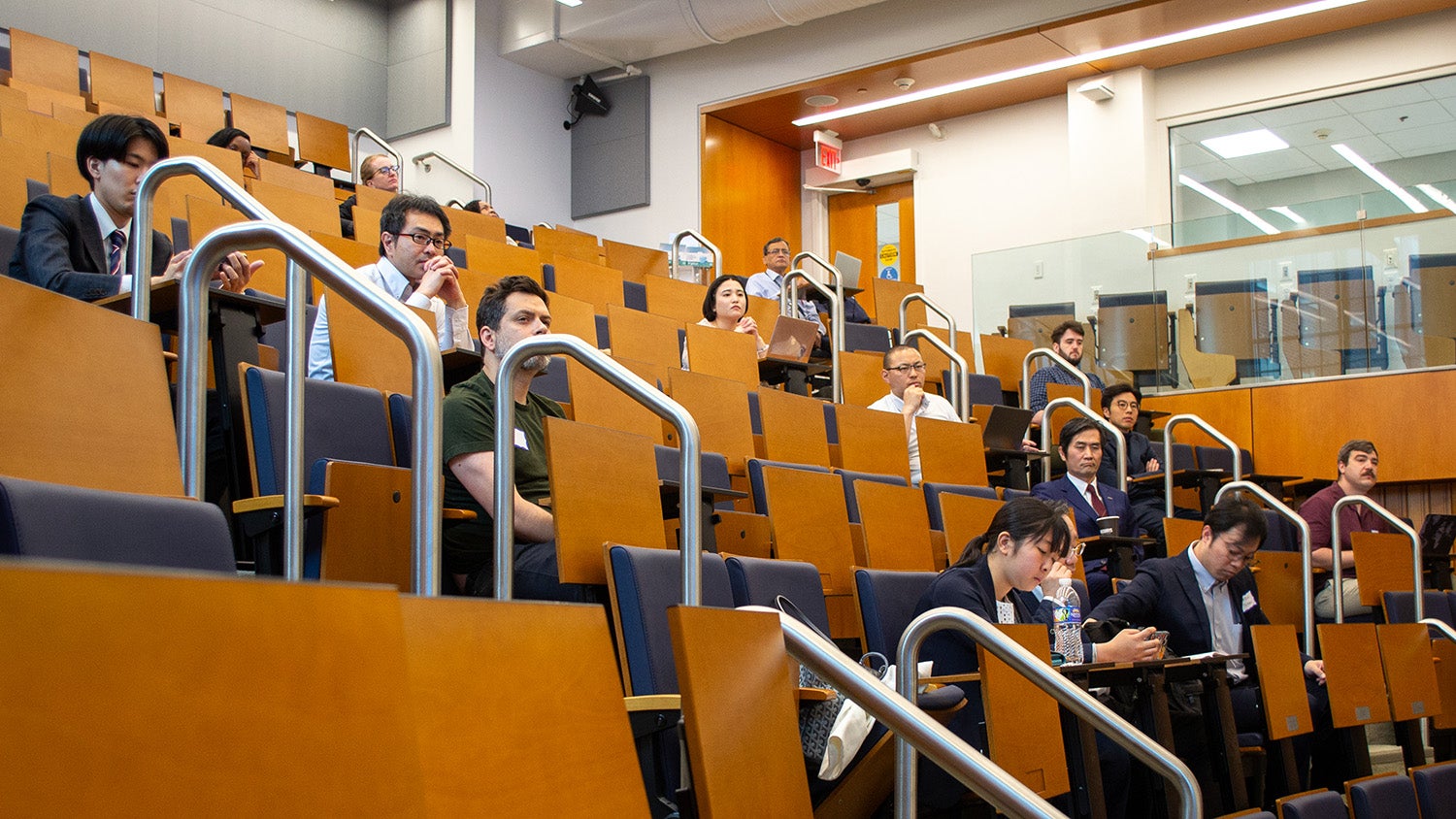At ‘Food as Medicine’ Conference, Microbiome Fuels Big Conversations
Food is part of modern life in so many ways: It’s a natural resource, an industrial product, a lifestyle component, a cultural experience. Inside our bodies, food is also a key influence on the gut microbiome – the community of bacteria, fungi and other microorganisms living inside us that affect our physical and mental health.
The microbiome was key to the conversation at a new Georgetown conference, “Food as Medicine: Microbiome, Fermentation, and Medicinal Food,” hosted May 9-10 by the Department of Microbiology & Immunology. Leaders from academia, industry and government came together in person and over Zoom to talk about where our food comes from, how it affects our bodies and minds, and how we can confront societal challenges around food and nutrition.
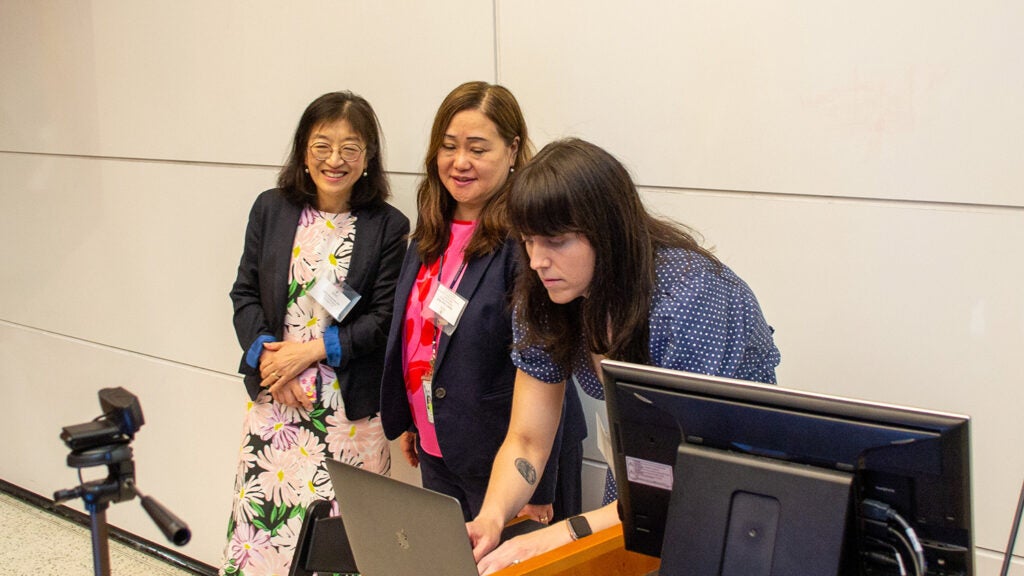
Conference co-chairs (from left) Chiyo Kobayashi, Tomoko Steen and Marian Flaxman.
The conference was the brainchild of Tomoko Steen, a microbiomics researcher, government adviser, and director of Georgetown’s M.S. in Biomedical Science Policy & Advocacy and M.S. in Biohazardous Threat Agents & Emerging Infectious Diseases programs. With a growing body of research tying microbiome health to overall well-being, Steen wanted to foster discussion of the subject among experts from different areas. With the help of her conference co-chairs, consultant Chiyo Kobayashi and nutrition policy consultant and health and science communicator Marian Flaxman, she drummed up a diverse and receptive slate of speakers. Government officials, soy sauce and miso manufacturers, chefs, nutrition educators, professors and Biomedical Graduate Education (BGE) students found common ground in the pursuit of better health through understanding the microbiome.
“Dr. Steen and I are both very passionate about breaking down silos and merging conversations,” said Flaxman, who graduated from the M.S. in Biomedical Science Policy & Advocacy program in 2023. “Some of the speakers that I’ve brought in today are chefs and fermentation specialists, and to bring them into the same room as NIH scientists – just very thrilling.”
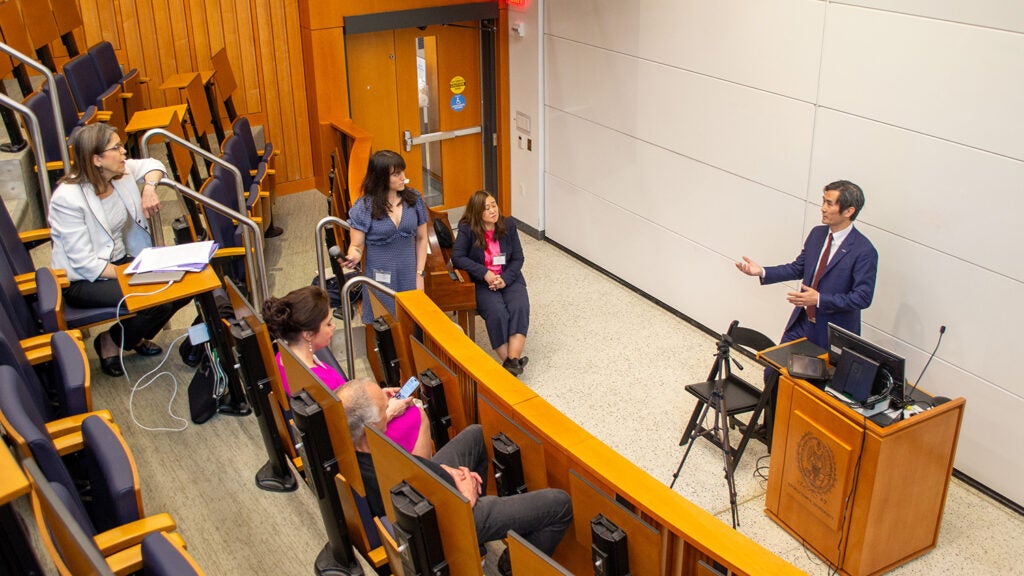
Takashi Sato, president of San-J soy sauce company and an eighth-generation soy sauce maker, responds to a question from Georgetown professor Hakima Amri.
With so many perspectives on food, conference presenters covered a range of topics, including microbiome health, food policy, microbiome-boosting fermented foods, healthy diets, and education. Attendees learned about connections between the microbiome and a range of diseases; school meal programs for children from low-income families; the centuries-old history of Japanese soy sauce, and the koji mold fermentation process used to brew the condiment; nutritional and cultural aspects of the gut-healthy Mediterranean diet; and how to make kombucha at home, among many other presentations.
BGE students also presented at the conference. Six master’s students gave “lightning talks” on their science and policy research, exposing public health threats and highlighting opportunities for better health policies.
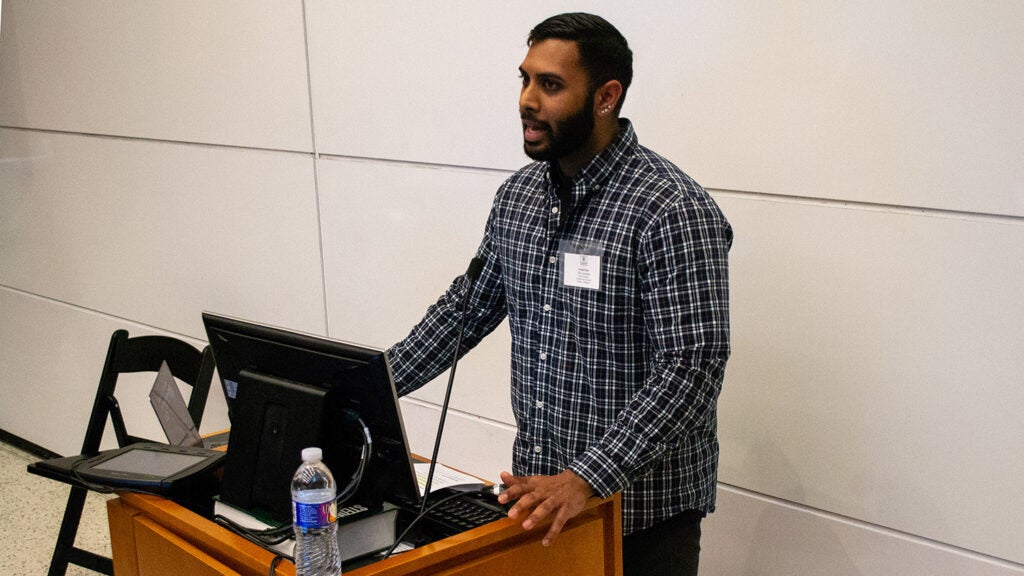
Georgetown student Noah Peter presents on “Sugar, Obesity, and the Future of U.S. Public Health.”
“I thought it was a great opportunity to kind of showcase what we’ve been doing through the capstone from last semester,” said Noah Peter, a Biohazardous Threat Agents & Emerging Infectious Diseases student who spoke about sugar, obesity, and the future of public health in the United States. “It just gives me an opportunity to advocate for something that I truly believe in.”
Steen said she hopes to make the conference an annual event to continue to encourage people from different academic and professional backgrounds to learn from one another about the microbiome, food and health.
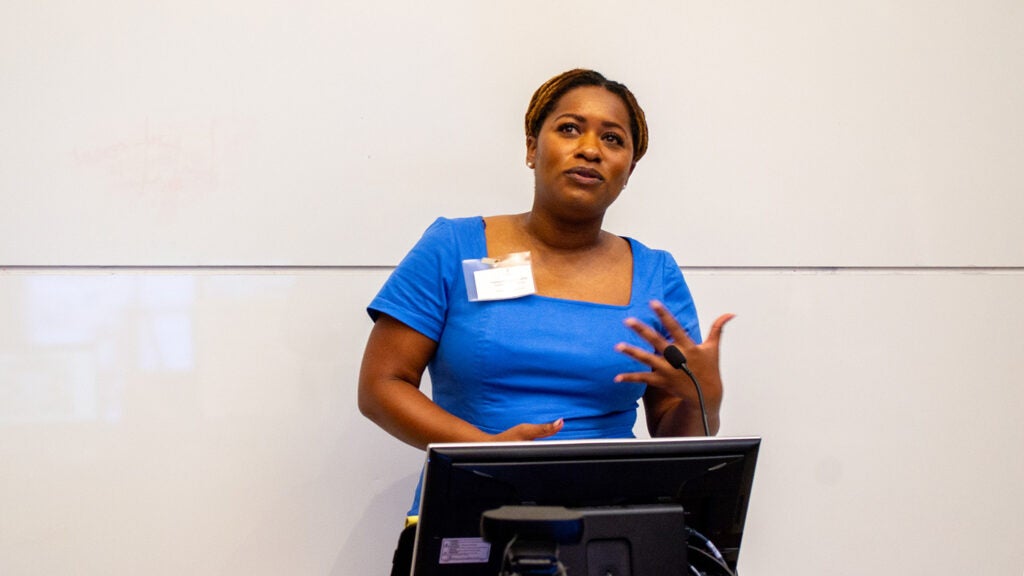
Sakeenah Shabazz, a U.S. Department of Agriculture (USDA) senior policy adviser on food and nutrition, delivers a keynote presentation on government programs promoting equitable access to nutritious food.
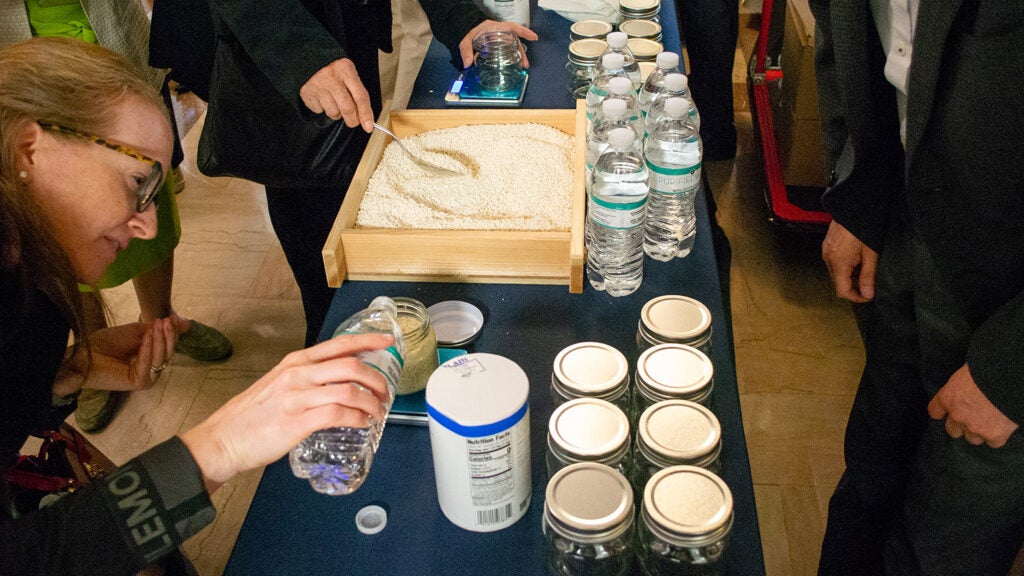
Conference attendees assemble jars of koji mold, which is used to brew soy sauce, miso and sake.
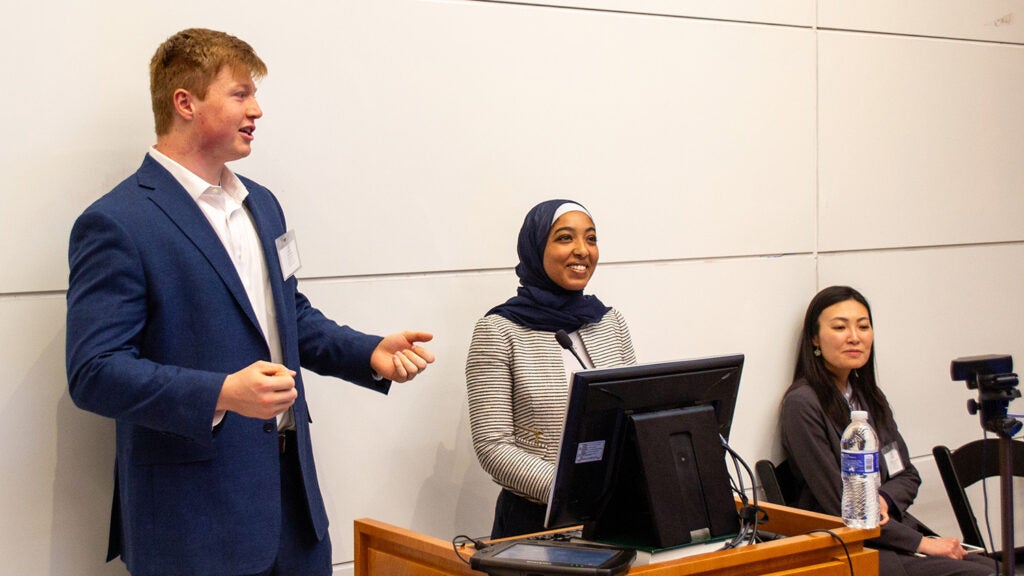
Georgetown students Jack Bryan and Lamice Bakhit give a talk promoting medically tailored meals for veterans.

